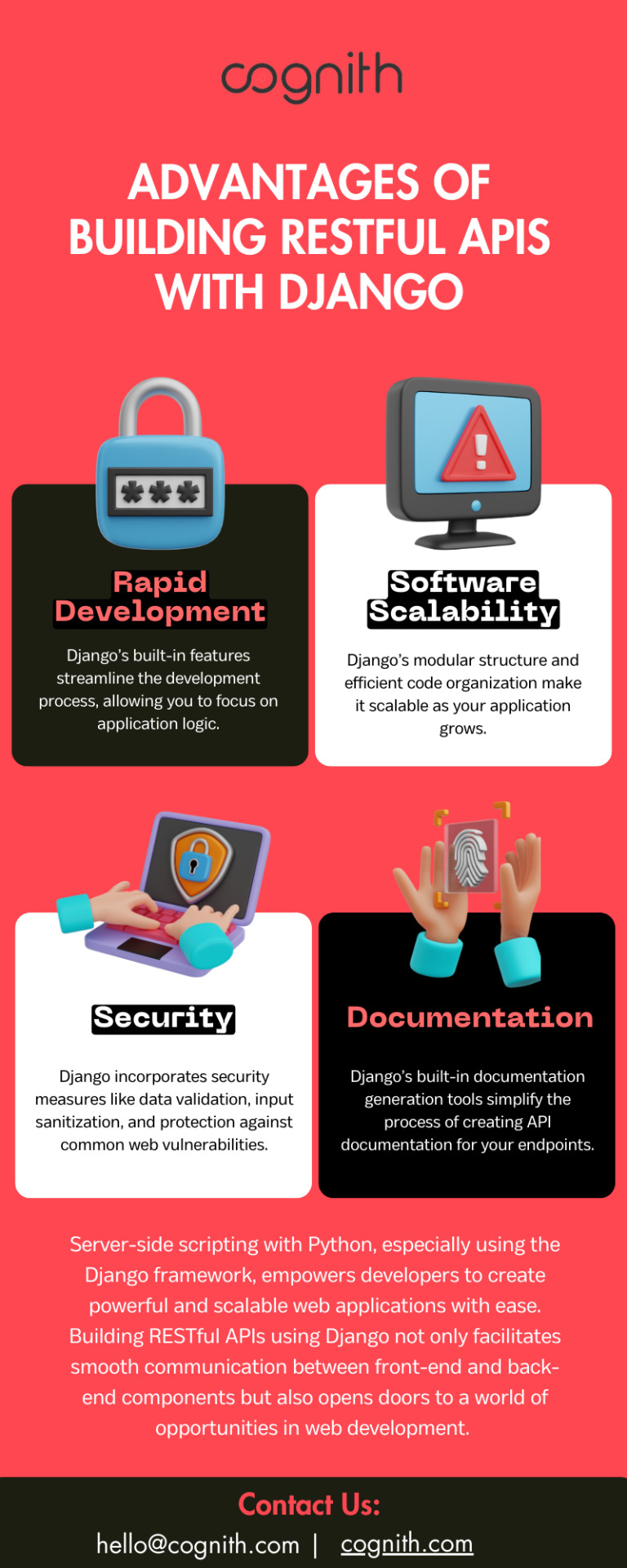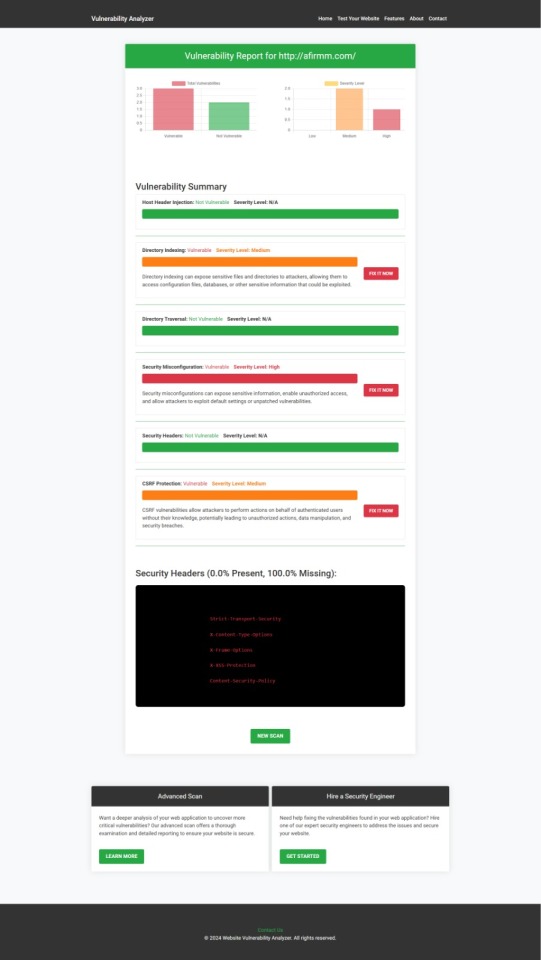#RESTful APIs
Explore tagged Tumblr posts
Text

Server-Side Scripting Explained: Simplifying Web Development
Explore how server-side scripting works, from processing user requests to delivering customized content. Learn the benefits for both developers and users.
0 notes
Text
REST APIs
REST (Representational State Transfer) is a type of API where all the information needed to perform an action is passed to the API at the time the request needs fulfilling. The server does not need previous knowledge of the clients session in order to fulfill their request.
The alternative to this is that the client having a 'session' with the server, where the server keeps information on the client while it's active, which can take up a lot of server processing power and memory. For large services handling possible hundreds of thousands of clients at a time, keeping a 'connection' can take up a lot of server processing and memory.
REST speeds up processing time for both the server and client. With sessions, they can end up split over multiple servers, meaning servers have to communicate to get data which can slow down response time. Because the server needs no prior knowledge of a client, any client can handle any client's request easily, which also makes load balancing easier, a request can be sent to any server that can handle it which is currently the least busy.
All REST APIs use HTTP methods. A client sends a request via HTTP to a specific endpoint (location on the web), along with all of the information needed to complete that request. The server will then process it and send back a response.
Core features of REST:
Client-Server Architecture - a client that sends requests to a server, or set of servers via HTTP methods.
Stateless - client information is not stored between requests and each request is handled as separate and unconnected.
Cacheability - data that is expected to be accessed often can be cached (saved for a set amount of time) on the client or server side to make client and server interactions quicker.
Uniform interface - no matter where an endpoint is accessed from, its requests have a standard format. Information returned to a client should have enough information and self description that the client knows how to process it.
Layered system architecture - calls and responses can go through multiple intermediate layers, but both the client and server will assume they're communicating directly.
Code on demand (optional) - the server can send executable code to the client when requested to extend client functionality.
5 notes
·
View notes
Text
SQL Injection in RESTful APIs: Identify and Prevent Vulnerabilities
SQL Injection (SQLi) in RESTful APIs: What You Need to Know
RESTful APIs are crucial for modern applications, enabling seamless communication between systems. However, this convenience comes with risks, one of the most common being SQL Injection (SQLi). In this blog, we’ll explore what SQLi is, its impact on APIs, and how to prevent it, complete with a practical coding example to bolster your understanding.

What Is SQL Injection?
SQL Injection is a cyberattack where an attacker injects malicious SQL statements into input fields, exploiting vulnerabilities in an application's database query execution. When it comes to RESTful APIs, SQLi typically targets endpoints that interact with databases.
How Does SQL Injection Affect RESTful APIs?
RESTful APIs are often exposed to public networks, making them prime targets. Attackers exploit insecure endpoints to:
Access or manipulate sensitive data.
Delete or corrupt databases.
Bypass authentication mechanisms.
Example of a Vulnerable API Endpoint
Consider an API endpoint for retrieving user details based on their ID:
from flask import Flask, request import sqlite3
app = Flask(name)
@app.route('/user', methods=['GET']) def get_user(): user_id = request.args.get('id') conn = sqlite3.connect('database.db') cursor = conn.cursor() query = f"SELECT * FROM users WHERE id = {user_id}" # Vulnerable to SQLi cursor.execute(query) result = cursor.fetchone() return {'user': result}, 200
if name == 'main': app.run(debug=True)
Here, the endpoint directly embeds user input (user_id) into the SQL query without validation, making it vulnerable to SQL Injection.
Secure API Endpoint Against SQLi
To prevent SQLi, always use parameterized queries:
@app.route('/user', methods=['GET']) def get_user(): user_id = request.args.get('id') conn = sqlite3.connect('database.db') cursor = conn.cursor() query = "SELECT * FROM users WHERE id = ?" cursor.execute(query, (user_id,)) result = cursor.fetchone() return {'user': result}, 200
In this approach, the user input is sanitized, eliminating the risk of malicious SQL execution.
How Our Free Tool Can Help
Our free Website Security Checker your web application for vulnerabilities, including SQL Injection risks. Below is a screenshot of the tool's homepage:

Upload your website details to receive a comprehensive vulnerability assessment report, as shown below:

These tools help identify potential weaknesses in your APIs and provide actionable insights to secure your system.
Preventing SQLi in RESTful APIs
Here are some tips to secure your APIs:
Use Prepared Statements: Always parameterize your queries.
Implement Input Validation: Sanitize and validate user input.
Regularly Test Your APIs: Use tools like ours to detect vulnerabilities.
Least Privilege Principle: Restrict database permissions to minimize potential damage.
Final Thoughts
SQL Injection is a pervasive threat, especially in RESTful APIs. By understanding the vulnerabilities and implementing best practices, you can significantly reduce the risks. Leverage tools like our free Website Security Checker to stay ahead of potential threats and secure your systems effectively.
Explore our tool now for a quick Website Security Check.
#cyber security#cybersecurity#data security#pentesting#security#sql#the security breach show#sqlserver#rest api
2 notes
·
View notes
Text
I'm going to explode. I had to wake up at six and now I absolutely cannot code. Hlep
6 notes
·
View notes
Text
computer that hates you call that HATEOAS
#esha.txt#Ok the joke is I learnt about rest apis today and that’s a real acronym that stands for#Hypermedia as the engine of application state (No i don’t know why they decided to include every word in the acronym)#and I misread it as HATEOS like. Hate operating system at first.#Ok that concludes Bad cs jokes with esha
7 notes
·
View notes
Text
Call my fist an HTTP Post request, the way it delivers a message of pain directly to the endpoint of your face.
2 notes
·
View notes
Text
my biggest pet peeve is when i get into a video game fandom and discover that the entire fandom is made up of people who have never touched a video game before this one
#like. yeah of course that character model is out of bounds there#the animation shows the whole model coming out of the wall#do you assume they animated a custom cutscene where they built just the arm and then generated the rest of the model as he came through the#portal ???? do you not realize how much work that would take ?????#you people are downloading mods so you can see the faces of characters out of frame#but the concept of a character model and real time cutscenes and boundary boxes are completely foreign to you???#you downloaded the free cam mod !!! and got it working for a game with no native modding api !!!#i know you people aren’t complete idiots#let’s exercise some common sense.
3 notes
·
View notes
Text
Me: gah how dare I not quite get how C header files work in this 90s game I want to help decompile. Can I even consider myself an experienced programmer after this?.. Anyway brb gotta go spend 30min to write a quick script to export someone their playlist off of spotify and send them a CSV.
Them: what’s a CSV?
i beat myself up for not knowing enough about my special interests a lot but then i remember the average person off the street has no idea what the carboniferous is and i feel better
#to be clear!!#I 100% don’t judge anyone for not knowing what a CSV is or anything like that#and I know for a fact they are very much technically literate#but this was just a momentTM#because truly I lived in a world where everyone knows what a CSV is#‘and how REST APIs work of course.’ ‘of course.’
88K notes
·
View notes
Text
REST vs GraphQL in eCommerce Backend Systems
This blog compares REST and GraphQL in the context of eCommerce backend systems. It explains how both methods handle data requests, speed, and developer tasks for product listings, carts, and checkout flows.
The section on GraphQL vs REST API performance gives clear points on which works better in real-time store operations. Real-world examples help you understand which option may suit your online store better—without getting too technical or confusing.
0 notes
Text
Simplifying Data Management in 2025: How Point-and-Click Tools and Smart Ops Software Are Fixing Mismatched Data
In today’s data-driven business landscape, accuracy, speed, and usability are more important than ever. As organizations grow, so does the volume and complexity of their data—often leading to fragmented systems, duplicate records, and mismatched insights.
REST API data automation
0 notes
Text
What Is Server-Side Scripting? A Beginner’s Guide to Dynamic Websites
Learn how server-side scripting powers dynamic websites by handling requests and delivering personalized content. Explore its role in web development without the technical jargon.
0 notes
Text
Does learning Java increase my salary?
1. Introduction to the Java Job Market
Java is still one of the hottest programming languages out there. Whether you're just starting or have been coding for a while, knowing Java can really help your career. A common question is: Does learning Java boost my paycheck? The answer is yes—companies really want people who know Java because it's so flexible for web, mobile, and big business apps. Key topics include Java programming, Java developers, and job roles related to it.
Key Point: Java skills are in demand across different industries and can help increase your salary.
2. Java's Popularity and Market Demand
Big names like Amazon, Netflix, and Google use Java because it handles large-scale apps well. So, does learning Java increase my salary? Definitely. Employers will pay a premium for those who are good at Java. Key terms include Java software development, full stack, and backend developer.
Key Point: There’s a strong demand for Java devs, which leads to better pay and job security.
3. Java Skills and Salary Growth
Having Java skills gives you an edge. Companies are looking for people who know frameworks like Spring Boot and tools like Maven. Will learning Java increase my salary? For sure. With the right certifications and experience, you can earn more. And signing up for a Java course in Coimbatore can really help solidify your skills.
Key Point: Specialized Java knowledge can lead to promotions and salary increases.
4. Role of Certifications in Salary Hike
Getting a Java certification is a smart way to stand out. A lot of people choose the Java Full Stack Developer Course in Coimbatore for hands-on practice. Certifications prove your skills, and the answer to the question: Does learning Java bump up my salary? Yes.
Key Point: Java certifications help validate your skills and can lead to better pay.
5. Java Job Roles and Their Pay Scales
Java jobs range from junior developers to senior architects, and each level comes with higher pay. A Java training in Coimbatore can get you ready for roles like Full Stack Developer or Software Engineer. Is there a salary increase if you learn Java? Absolutely, especially for specialized roles.
Key Point: There are many roles in Java, and each offers attractive salary packages.
6. Java vs. Other Programming Languages in Salary
Java developers often earn more than those working with less popular languages. Unlike some newer languages, Java jobs tend to be more stable. Does learning Java mean better pay? Yes, compared to other languages, Java usually offers more consistent salaries.
Key Point: Java's long-standing presence in the industry generally means better pay than many newer languages.
7. Full Stack Java Developer Salary Benefits
Full Stack Java Developers are among the best paid in tech. Taking a Java Full Stack Developer Course in Coimbatore can prepare you for the job market. Will learning Java increase my salary? For sure—especially in full stack roles where you need to be skilled in both backend and frontend.
Key Point: Full Stack Java positions offer top salaries and are in high demand.
8. Java's Role in Enterprise Applications
Java is key for many enterprise systems. Learning enterprise-level Java can really answer the question: Does it help me earn more? Yes. A training program in Coimbatore that teaches things like Hibernate and JSP is worth considering.
Key Point: Skills in enterprise Java can set you up for well-paying jobs.
9. Local Training Institutes and Career Impact
Joining a local Java course in Coimbatore can boost your earnings. These programs offer hands-on projects and guidance from experts. So, does learning Java help with salary? Yes—local training can lead to quicker job growth.
Key Point: Local Java training can speed up your skills and help with job placements.
10. Final Thoughts and Brand Mention
In summary, does learning Java increase my salary? Yes, through certifications, full stack skills, and local training. Consider a reputable place like Xplore It Corp for training in Coimbatore, offering courses designed to meet job market needs.
Key Point: Xplore It Corp provides practical Java courses that can help you earn more.
FAQs:
1. Does learning Java help me earn more with no experience?
Yes. Even beginners can get better job offers after certified Java training.
2. What’s the average salary after a Java course in Coimbatore?
Freshers typically earn around ₹3-5 LPA, and pay can increase significantly after 1-2 years.
3. Is a Java Full Stack Developer Course in Coimbatore worth it?
Definitely. Full stack developers are in demand and usually earn 20-30% more.
4. How long before I see salary benefits after Java training?
Usually, you can expect to see salary increases within 6-12 months after completing the course.
5. Can I switch to Java and expect a pay increase?
Yes. Many people move from non-tech jobs to Java and see a boost in their salary.
#Java programming#Java developer#Java applications#Core Java#Java certification#Java frameworks#Spring Framework#Java full stack#Java backend developer#Java software development#Java training course#Java job roles#Object-oriented programming#Java IDE#Java runtime environment#Java REST API#J2EE#Java vs Python#Java vs JavaScript#Secure Java coding#Java deployment#Java enterprise solutions#Java bootcamp#Java multithreading#Java performance optimization
0 notes
Text
Integrate SWFI data into your system through the Data Feeds & REST API. Access real-time insights on investments, sovereign wealth funds, and more seamlessly.
0 notes
Text
Exposing your API in Drupal
API’s can be great when you want your website to communicate with other third-party sites/apps to give or request any kind of data. Learn how you can expose APIs in Drupal 10 in this brief tutorial.

0 notes
Text
Best Practices for Securing ColdFusion REST APIs with OAuth2 and JWT
#Best Practices for Securing ColdFusion REST APIs with OAuth2 and JWT#Securing ColdFusion REST APIs with OAuth2 and JWT
0 notes
Text
Call my kiss an HTTP Post request, the way it delivers a message of love directly to the endpoint of your lips.
2 notes
·
View notes